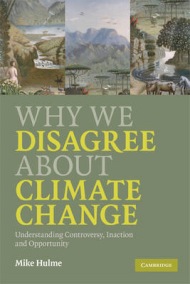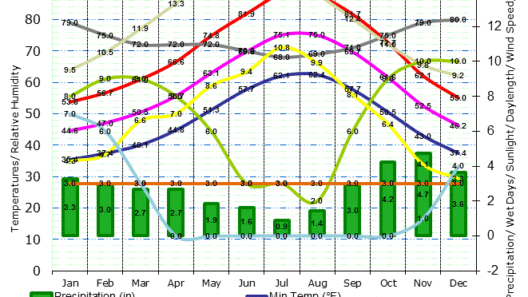Climate change, an omnipresent issue of the 21st century, generates significant debate across various spheres of society. Despite the overwhelming consensus among scientists regarding its anthropogenic roots, there exists a cadre of dissenters who question the validity, implications, and urgency of climate change. Understanding who disagrees and why reveals the multifaceted nature of this global challenge.
At the forefront, we have a spectrum of stakeholders: politicians, business magnates, media conglomerates, and everyday individuals. Each demographic embodies unique perspectives shaped by a complex interplay of economic, political, and cultural factors. Essentially, disagreement does not solely stem from ignorance; it is often a reflection of vested interests and differing worldviews.
In the political arena, skepticism is vocalized particularly by certain factions. Some political leaders and parties, often aligned with right-leaning ideologies, assert that climate change policies could stymie economic growth and threaten jobs. For these individuals, the prioritization of economic stability over environmental concerns serves as their justification. They contend that productive capacity must not be hindered by stringent regulations that might derail traditional industries dependent on fossil fuels.
Beyond politics, the business sector plays a significant role in perpetuating climate skepticism. For many large corporations—especially those entrenched in fossil fuel extraction, manufacturing, and agriculture—the call for substantial reform to mitigate climate change directly threatens their profit margins. Lobbying is an instrument wielded effectively to dissuade stringent climate policies, often infusing public discourse with misleading narratives that question the science of climate change. The argument proffered is one of caution, suggesting that rapid transitions to renewable energy could destabilize markets and eliminate jobs.
The media landscape further complicates the discourse surrounding climate change. Outlets, particularly those with sensationalist tendencies, can both inform and misinform the public. A subset of media channels promotes skepticism, often disproportionately representing fringe opinions as if they hold equal weight to the scientific consensus. This phenomenon fosters confusion among the public, engendering an environment where dissenting opinions are amplified, thereby casting doubt on the legitimacy of scientific findings.
Individuals, too, may harbor skepticism, stemming from a variety of reasons ranging from misinformation to personal convictions. The complexity of scientific data regarding climate change can be intimidating, often leading individuals to latch onto simplified explanations that resonate with their existing beliefs. Cognitive biases, such as confirmation bias, play a critical role; many people tend to seek information that corroborates their preconceptions, creating an echo chamber of doubt surrounding climate science.
Another significant aspect to consider is the cultural context. In some regions, particularly where the economic dependence on non-renewable resources is profound, climate change skepticism can be interpreted as a threat to cultural identity. Communities that have thrived on resource extraction may perceive environmental regulations as existential risks, leading to resistance against climate discourse. This cultural lens complicates advocacy efforts, necessitating a nuanced approach that acknowledges these identities while promoting environmental stewardship.
Moreover, the concept of climate change has been politicized to such an extent that individuals may feel compelled to align their beliefs with their political affiliations. In polarized environments, agreeing with climate change initiatives often equates to endorsing a particular political philosophy. This association can unearth inherent motivations of tribalism, where individuals reject scientific consensus merely to maintain their group identity. Such dynamics underscore the importance of framing climate action as a non-partisan issue, prioritizing the shared value of preserving our planet for future generations.
Lastly, economic arguments against climate change initiatives boil down to what is often termed the “cost-benefit analysis.” Skeptics argue that the immediate costs of action may outweigh long-term benefits due to uncertainties in climate projections. Such arguments, albeit less scientifically rigorous, resonate with individuals focused on short-term gains, underplaying the profound and irrefutable potential of unmitigated climate change on ecosystems and human welfare.
Addressing climate change requires more than mere acknowledgment of dissenting views. Engaging with skeptics mandates a thorough understanding of their underlying motivations. The shift in perspective is paramount. By encouraging open dialogues that cater to scientific literacy, unmasking interests that fuel skepticism, and addressing cultural and identity-based connections to climate dissent, advocates can evolve the conversation from one of contention to one of collaboration.
To pique curiosity, consider presenting these stakeholders with compelling narratives that emphasize the co-benefits of climate action: economic opportunities in renewable energy, health improvements linked to reduced pollution, and long-term sustainability. Such narratives can serve as a catalyst for transformation, enabling a re-evaluation of perspectives rooted in fear and self-interest.
In summary, the personas who disagree about climate change are not a monolithic bloc; they are diverse, with motives ranging from economic preservation to cultural identity. By delving into the intricacies of their perspectives, it becomes evident that educated dialogue around climate change can create pathways toward broader consensus. This presents an urging call for collaborative action; the time to transcend skepticism toward solutions is now.







